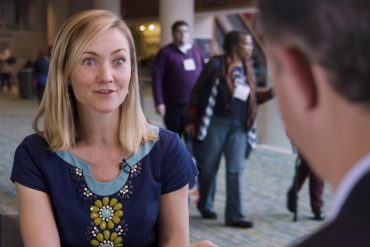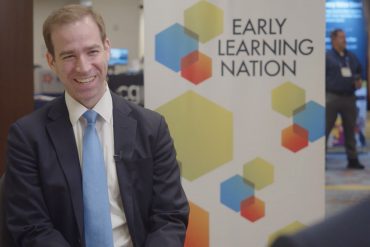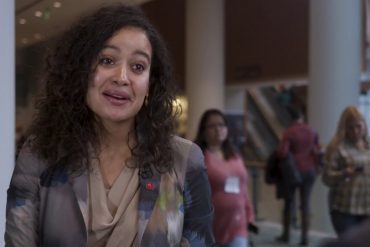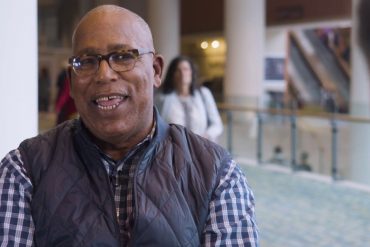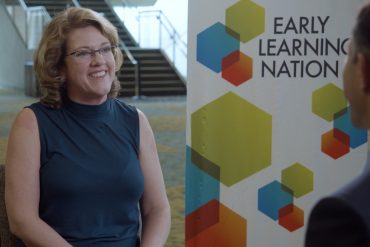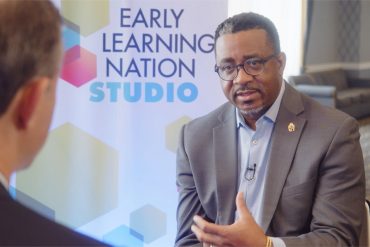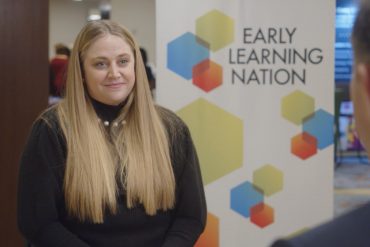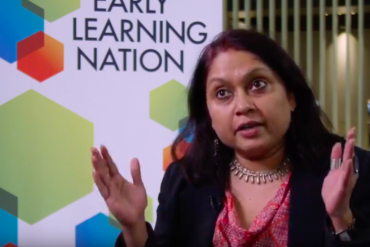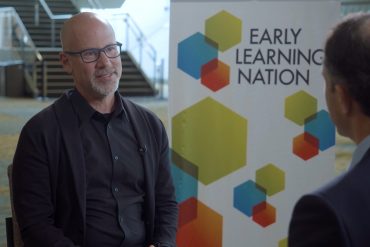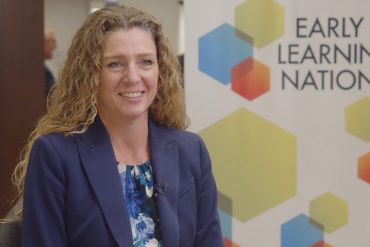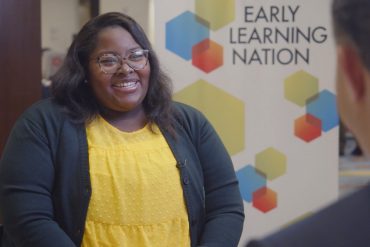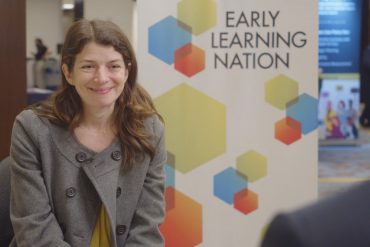It’s the not-so-secret secret: Higher rates of poverty occur for U.S. children in rural communities rather than urban ones. Yet delivering the benefits and tools of brain science to these areas is difficult in terms of cost, location, infrastructure. As Senior Specialist Lindsey Lockman Dougherty, Save the Children – in partnership with the Vroom Initiative – is doing something about that.
For years, Hartford (CT) has been recognized as a leading city in early childhood learning. As Mayor Luke Bronin describes, the results come from a committed community, dedicated civic resources, including a Department of Families, Children, Youth and Recreation, with a division specifically focused on early child development – and the willingness to accelerate good ideas no matter where they come from. It starts, he says, by “working closely with families.”
As Manica F. Ramos, Senior Research Scientist at Child Trends notes, we often forget that parents are the first and primary teacher for their child – from the moment they’re born, through their school experiences, and until the end of the day. Which is why helping parents learn how to teach in every day moments is such an important piece of a child’s early learning experience.
How do you build leadership in early learning? According to Maurice Sykes, Executive Director of the Early Childhood Leadership Institute, it goes beyond the usual skills and benefits from an eye towards equity and social justice: “[making] sure that children, regardless of zip code or surname or gender, have access to high quality programs.”
Self control. Attention. Focus. These foundational skills make up a key area of early childhood development: Self-regulation. So what can teachers, parents, caregivers –even children themselves – do to help those skills grow? Oregon State University Professor Megan McClelland explains the science and the practical things we all can do. Filmed for Early Learning Nation’s Mobile Studio at the Society for Research in Child Development’s biennial meeting in Baltimore, MD, on March 22, 2019. #SRCD19
The Schott Foundation gathered grassroots organizations from across the country for the Opportunity to Learn Federal Policy Commission. On the eve of their recommendations becoming public, the Commission’s Director, Michael S. Wotorson, discusses why they came together and how their ideas will influence school board actions, local municipal leadership and state policy.
PRE4CLE is Cleveland's approach to expanding high quality preschool access across the city. The program began in 2014 and connected the community, county, school district, teachers, local philanthropy and of course, local government. Now they’re launching So Cleveland Early Learning Spaces, a focused effort to improve facilities in order to improve the learning environment. As Michelle Connavino, PRE4CLE’s Director of Communication & Special Initiatives, explains: It’s all part of Cleveland’s goal to ensure greater access for all three and four year olds throughout the city.
For many children in India, getting to early education centers is impossible while their parents work long hours at often temporary jobs. So what if early education centers traveled to kids instead? Executive Director Sumitra Mishra describes how Mobile Creches has been doing just that for 50 years.
When University of Maryland Associate Professor Geetha Ramani and her colleagues visit early learning classrooms, they’re known as the “game people.” Ramani’s research shows not only the importance of teaching math skills, but also the effectiveness of what might seem like an obvious tactic: Make it fun.
For a community looking to address various social challenges, Vallejo, CA is starting with early childhood learning. As City Councilmember Pippin Dew says, programs such as the new First 5 Center not only help set children for future education success, but also helps families be the most productive they can be.
As an NLC Youth Representative, North Carolina High School junior Ramie Mack has the opportunity to talk with adults, including mayors and city councilmembers. And as she advocates for learning, Ramie wants those leaders to understand that youth face challenges, too. That’s just one reason she advocates for making sure students are part of the conversation when learning is being discussed.
As a Reporting Fellow at New America’s Better Life Lab, Rebecca Gale has covered many aspects of America’s approach to child care. And one thing she knows: it’s complicated. From economics to use cases to the delivery system to funding and beyond, the U.S. has no one-size-fits-all approach. That patchwork leaves too many gaps, and that’s just one reason Gale argues that one way to improve America’s child care system is to improve how journalists report about it.


